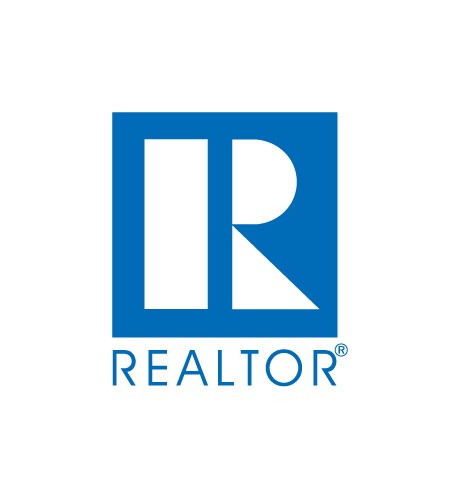


How soon can Smythe & Associates Stellar Home Pro’s, start managing my property?
We can start the process immediately. Contact us so we can find out more about you and your property and see if we would be a good match for your wants and expectations regarding management services. We can do all of the paperwork needed electronically and begin the process very quickly.
Marketing Your Property
Setting the correct rental price.
Even the best properties will not lease quickly if overpriced. We analyze the market to be certain your home is priced according to current market conditions.
Prior to placing a property on the rental market or renewing a lease, we do a comparative market analysis and determine the most economical and profitable rental rate that can be charged. After a property has been exposed to the market for two weeks without renting, we look into the possibility that the asking rent is too high. We will consider lowering the rent so that the property will not sit vacant.
What do you do to get my property leased?
In the Tampa Market – the Multiple Listing Service (MLS) is the most effective marketing tool by far. When a home goes into the MLS – it literally spiders out to 1000’s of websites making your property visible to the world. We have learned certain tricks to maximize your exposure. Pictures are wide angle with a high-quality camera. We display the best four pictures first (Front, Kitchen, Living Room, Etc…). Your property data is entered in the StellarMLS Multiple Listing Service giving access to over 6,500 REALTORS®. We pay a leasing fee to the agent who brings us a qualified tenant, whether the agent is from our office or from another company.
We show your property personally.
We have motivated leasing agents, who are all licensed REALTORS®.
For rent sign.
“For Rent” signs are normally placed on a rental property thirty (30) days prior to the property’s availability date. For new property, the sign is placed on the date the unit first comes under our management or, if necessary, when the property is in a showing condition. (Unless restricted by Neighborhood)
Finding Quality Renters
Rental application Process.
After a prospective resident has been shown a property and has expressed a desire to lease it – our Rental Application must be submitted through our online application procedures. The prospective tenant must also submit a nonrefundable Application Fee. The application fee is retained by the company to defray the cost of processing the application. Upon approval of the application, Smythe & Associates will collect a security deposit for that property. No home is taken off the market until an application is fully approved and a security deposit is in hand to us via certified funds.
Equal Housing Opportunity.
Smythe & Associates is committed to the Equal Housing Opportunity Laws, and we do not discriminate against anyone on the basis of Race, Color, Religion, Sex, Handicap, Familial Status, National Origin or Age.
What do you do to qualify a tenant after they have made application to rent my property?
This is one of the most important aspects of the successful management of rental property. We look at an applicant’s past behavior and assume their future behavior will be the same. An applicant must demonstrate a history of being a good, responsible tenant as well as meeting our financial criteria.
We pull a credit check and review the results looking at income, rental history, credit, employment, family size, pets, and any other stipulations presented in order to make a good decision upon which tenant to rent to. It is our policy to choose the BEST applicant, not always the first. Credit is not the always the most important aspect of screening an applicant and our goal is to ultimately pick a tenant that will be a good fit for us and the owner of the home.
- Tenant Employment and Income Verifications
We verify job title, job status, salary and prospects for continued employment. An applicant needs to earn at least 2.5 to 3 times the monthly rent in gross income to qualify for rental. - Eviction and Criminal Reports
We pull a background check that has access to public records that tell us if the applicant has ever been evicted. This is a level of scrutiny that most other property management companies do not perform. - Landlord Verifications
We contact past landlords to verify rental history and ask detailed questions about the applicant’s past performance. This information is entered into the results of the application for record and the owner is allowed to view this information.
Can you put the money Directly into my checking account?
Yes! We can deposit your proceeds directly into your bank account. We will email you your monthly statements. Also, you may login to our online portal to view your monthly statements.
When do you disperse the owner’s funds and email statements?
Frequently, we get asked why owners have to wait so long to get their rent proceeds when rent is due on the 1st of the month. We think that it is a good question!
Yes, our lease agreement states that the rent is due on the 1st of the month. Florida law says that we have to give the tenants a grace period. Therefore, the tenants have to midnight on the 3rd before they are considered to be late with their rent.
So consequently, when we open our office on the (4th), we have a lot of rents that were dropped off late on the night of the 3rd. If the 4th falls on a Saturday or Sunday, or a holiday, in which case we are closed, this will further delay the process. The checks that we receive on the morning of the 5th, we have to post into the property management software. Then we have to do deposit slips for the bank, so then on the afternoon of the 5th (sometimes later), if all goes smoothly, we can deposit any recently dropped off checks into the bank. The bank then has to post these deposits to our account, which again, if it falls on a weekend or a holiday, does not happen until the following Monday, or workday for the bank. Therefore, if the funds for us to send you your money are not credited or put into our account before we send out checks then some of checks we send out could be returned for Nonsufficient funds, causing numerous other problems for all of us.
We process statements and rent proceeds between the 7th and 9th of each month. You should receive your statement and rent proceeds no later than the 10th to the 12th providing the property is occupied and the rent has been paid on time.
Disbursements are made by ACH direct deposit into the owners’ accounts and statement notifications are emailed the next day.
What happens if a tenant does not pay their rent?
If payment has not been made by the 4th – 6th day of the month, we send an eviction notice posted to the front door of the home. Whether or not we eventually have to proceed with a formal eviction depends on the specific circumstances. It is usually financially better, for all involved, if a solution can be worked out. If the tenant has experienced a one-time event which caused them a financial hardship, and we have had no previous problems with them, we will normally give them a chance to catch up, if there is reason to believe they can do so. If the tenant has demonstrated an ongoing pattern of late payments, broken promises and/or evasiveness, eviction is usually the best course of action.
Each case is unique, and we make our decisions based on what is best for you and the property in the long run. We always proceed with the legal notices required for eviction regardless of any other factors. We will simply postpone the actual filing of the eviction if the tenant is showing favorable effort toward resolution. Evictions in Florida are a simple legal matter as there is no way a tenant can prevail in court if they have not paid rent, and the landlord has properly executed the notices and filing. Full evictions, when necessary, can usually be completed in five to six weeks. If the tenant can fully catch up with rent and late fees during that process, an eviction can be halted at any time.
How much security deposit do you charge the tenant?
We will collect a security deposit equal to the first month’s rent in most cases. There are some cases when we may require more.
Who holds the tenant’s security deposit?
Smythe & Associates will hold the security deposit in a Trust Account in accordance with State and Florida Real Estate Commission guidelines. At the end of the lease agreement, the security deposit will be itemized and refunded back to the outgoing tenant. Should a tenant default, the security deposit would be credited to the owner.
Thorough preparation of the rental property?
The most desirable properties, priced well, will not lease quickly if they are not in top condition. Properties must show well and have “curb appeal”. We make sure your property is presented in a clean and attractive condition so that it will catch the attention of a good, qualified tenant.
Under your system of property management, how informed will I be about what’s going on with my property?
We have a “ZERO SURPRISE” policy in regards to your home. If a repair request or tenant action comes in, you will be informed about it simply through our automated email system using our management software. Our Portfolio Manager’s and staff do their very best to ensure we stay in constant communication with you about your home.
Key Control.
We have strict control of all keys. The keys for each property are locked in a steel wall cabinet and are assigned a control number (i.e., they are not labeled with an address). All keys issued to tenants, repairmen or agents are documented. We need at least four sets of keys to each property – One to the Owner, One to Smythe & Associates Realty, and Two for the tenants.
Rent increases/rent renewals
Unless we receive specific written instructions from an owner at least 45 days prior to a lease expiration date, rent increases (if any) and lease renewals will be solely at the discretion of Smythe & Associates.
When making the decision on whether or not to increase rents, we consider market conditions, neighborhood conditions, resident payment history, length of occupancy, property condition, time of year and anticipated expiration date of any renewal.
Our standard rent raise is on average 4% of the monthly rent. Tenants are informed of this type of rent raise from the very beginning of their tenancy in the application and initial lease.
There are times after the tenant’s initial lease agreement, where the tenant’s needs to stay on a month-to-month lease agreement or renew their lease agreement for a shorter period of time because of pending job transfers, purchasing a property, financial reasons, etc… Unless the owner is moving back into the property or putting the property on the market for sale, we will allow shorter periods.
Once a lease is signed, it cannot be changed, so it is very important for you to notify us well in advance of your desire to make any changes.
Breaking the lease
A lease normally contains only one provision by which a tenant can terminate his or her lease without penalty.
A Military Clause permits military personnel to terminate the lease when they present proof of a transfer outside the Tampa area. They are required to provide thirty days written notice prior to vacating the house. If orders are not available, a letter signed by their Commanding Officer will suffice.
Occasionally, a tenant’s civilian employer requires them to transfer to another city. In this case, the resident may terminate their lease by following the EARLY TERMINATION procedures in their lease agreement.
The tenant will bear all expenses normally experienced with re-renting the home, and pays the rent until the property is re-rented, tenants may be released from their obligations upon successful completion of the early termination and paying all associated fees involved.
Some examples that fall outside of normal management services.
Example (1). When an owner wants to use a company like Sears to deliver a new stove to a vacant property, and we have to meet Sears at the property, there is a service fee associated with this to take the time, personnel and gas to go to the home and accommodate this request.
Example (2). If the owner is refinancing the property, and we must meet the appraiser or other person at the property, there is a service fee associated with this.
Example (3). Sometimes an owner wants us to take pictures of a new fence, new roof or a repair that has been done on the property. We are happy to do this for owners, but we have to charge a service fee for this.
Owners often ask us to do things that are outside our normal management services, and we try to accommodate our owners whenever possible.
What should I do if the tenant calls me?
Responsible tenants are valuable assets to both of us. A satisfied tenant can bring us referral business and will be more inclined to care for your property as if it was their own. As the owner of the property, it is best that you avoid direct communication with the resident and refer all inquiries to our office. We maintain a diplomatic relationship, between you and your tenant. We do understand that this is your home and asset and there are some owners who prefer to be best friends with their tenants. However, we don’t recommend this as when something happens that requires strict action – we find that tenants will mommy / daddy us. We tell them “NO – you can’t pay late this month because you overspent money last month.” They don’t like that answer and turn around and contact the owner. If the owner gives in to the tenant, it ruins our ability to enforce anything – defeating the purpose of why you hire a property manager in the first place.
I want to use a home warranty for all my covered repairs, is that okay?
We prefer that the owners do not use a Home Warranty Company to make repairs at their rental property. It is possible for us to accommodate a home warranty – but read this first!
There is a HUGE problem in the home warranty industry, and the public is becoming savvy to it.
Try searching Google with the name of your favorite home warranty company and the word `complaints’ or `fraud’. You will be amazed. Find out how many people feel like they got burned, turned down wrongfully, or got seriously bad service. Furthermore, feel free to visit www.my3cents.com for even more examples of this currently growing problem THERE ARE MANY OTHERS…..
Almost Every time we call a home warranty company for a problem, they deny the service either on grounds of lack of maintenance or abnormal wear and tear. How do you define abnormal wear and tear and lack of maintenance? When it comes to exclusions and small print, Warranty contracts say a claim can be denied for lack of maintenance, improper maintenance, improper installation, pre-existing problems, code violations and numerous other reasons.
Warranties are typically purchased by home sellers or their real estate agents to avoid lawsuits if something breaks in the first year.
Not to be confused with a builder’s warranty, a so-called home warranty — Actually a service contract — is typically purchased for existing homes, especially homes sold by real estate agents. These service contracts generally cost $400 to $600 for a year-long basic-coverage plan that includes items like ceiling fans, water heaters and furnaces.
The contracts come with loopholes. You need to carefully read your service agreement to determine what is and what isn’t covered. Coverage for plumbing, for example, typically ends at your home’s foundation, so leaks or breakages beyond that would be your responsibility. “Pre-existing” problems typically aren’t covered, nor are breakdowns that result from poor maintenance or improper installation. The contract also may require that a system be upgraded to current building code standards — at the homeowner’s expense — before they agree to consider repairs. People who have had problems with the home warranty companies say that the more expensive the repair or replacement, the more likely home warranty companies are to invoke these exclusion clauses.
You don’t have control over who does the work. The home warranty provider contracts with local service companies to perform the actual inspections and repairs. You don’t get to choose, and scheduling repairs can sometimes be a trial taking days for immediate service.
The service technician may also try to sell you unneeded services.
So, what is a homeowner to do? Many consumer advocates would say it’s better to “self-insure” — setting aside a reasonable sum each year to cover routine maintenance and finding reliable local contractors to do the work. You can’t shift all the risk of home repairs to a home warranty company because, as noted above, many repairs won’t be covered by your agreement.
So, when might a home warranty make sense? If you are trying to sell a house, a home warranty can give buyers some peace of mind and may reduce the chances of your being sued should an appliance or system break down after the sale.
We have had hundreds of problems with home warranties.
An example: we had a bathroom faucet go on the blink; we called the Home Warranty Company. After paying the $55 deductible, their contractor refused to make the repair. So, we had our plumber go out and they made the repair for $65. We have experienced this over and over where the owners are spending money on deductibles and then we have to send out our maintenance people to fix the problem





